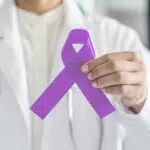Sex Differences in Health Awareness Day is celebrated on the Tuesday of National Women’s Health Week. This year it falls on May 12. This day was set to remind the public and medical professionals about the different health issues that affect men and women differently and to spread more awareness and education about it. For example, cancers like ovarian and cervical only affect women. Likewise, testicular cancer only affects men. Other diseases and health conditions, like autoimmune diseases, affect both sexes differently and the day seeks to highlight this. The day should be observed by not just those in the medical profession, but the general public to have a world with healthier people.
History of Sex Differences in Health Awareness Day
Sex Differences in Health Awareness Day is celebrated on the Tuesday of National Women’s Health Week, which starts on the second Sunday in May. National Women’s Health Week was created by the federal government’s Office on Women’s Health to encourage all women to make the right health choices.
Many health issues such as osteoarthritis and Urinary Tract Infections (UTIs) affect men and women differently, as women’s bodies differ from men’s. With this in context, it’s no surprise that diseases, medications, and medical devices used for treatment may affect women differently. So, a one-size-fits-all approach to preventing, managing, and treating diseases and medical conditions cannot work.
In 1986, the federal government started to address sex differences in health as the National Institutes of Health (N.I.H.) established a policy to include women in clinical research. The policy made researchers study how medications, procedures, and diseases affect women differently from men. A year after that, in 1987, the Demographic Rule was implemented and it required manufacturers to show before approval how safe and effective the drug was by sex, age, and race. This ensured that everyone who was going to take that drug was fit to take it. This proved very beneficial over the years as including women in clinical research has to new developments benefiting women.
Another major milestone in this journey was when in 2010, the Food and Drug Administration (F.D.A.) approved a smaller left ventricular assist device. The device is used in patients with severe heart failure who are not candidates for a heart transplant. The smaller version of the device addressed sex differences in body size and gives more women access to lifesaving treatment.
Sex Differences in Health Awareness Day timeline
The National Institutes of Health (N.I.H.) establishes a policy to include women in clinical research.
The Demographic rule requires manufacturers to show before approval how their drugs are safe and effective for all sexes, ages, and races.
The Food and Drug Administration (F.D.A.) approves a smaller left ventricular assist device to address sex differences in the body in treating patients with severe heart failure.
Sex Differences in Health Awareness Day is celebrated.
Sex Differences in Health Awareness Day FAQs
Is N.I.H. a U.S. government agency?
It is a part of the U.S. Department of Health and Human Services and is the nation’s medical research agency.
What does a gynecologist treat?
Gynecologists cater to the reproductive and sexual health of women.
Who is an obstetrician?
An obstetrician deals with all aspects of pregnancy, from prenatal care to postnatal care.
How to Observe Sex Differences in Health Awareness Day
Learn about the day
Celebrate the day by learning what it is about. It’s the best way to appreciate the cause.
Read about the differences in sexes
Educate yourself about the difference in sexes in terms of health. It would help in taking care of oneself as you would be aware of how different things affect different sexes.
Spread awareness
Spread awareness to celebrate the day. It would spread the cause to more people and make them aware of the differences in the health of both sexes.
5 Women’s Diseases That Also Affect Men
Osteoporosis
One in three women are at risk of osteoporosis (a disease that reduces the density of the bone, making it more vulnerable to fractures), as well as one in five men.
Breast cancer
About 1% of all breast cancer occurs in men.
Thyroid problems
Women are five to eight times more likely to develop thyroid problems.
Bladder infections
Men with an enlarged prostate, kidney stones, or an abnormal narrowing of the urethra can develop bladder infections.
Lupus
This autoimmune disorder can affect men, however, about 90% of diagnosed patients with lupus are women.
Why Sex Differences in Health Awareness Day is Important
It educates the public
The public gets to be better educated on days like these. Lots of people do not know that some drugs or treatments work better for the opposite sex.
It keeps medical professionals on their toes
Days like these serve as a reminder for medical professionals to be very careful when treating different sexes using the same method. Learn more about these differences so you can have in say in treatment.
It makes everyone healthier
As both the public and medical professionals are reminded of the differences in the health of the sexes, it makes everyone work to keep themselves healthy. They will learn one size does not fit all.
Sex Differences in Health Awareness Day dates
| Year | Date | Day |
|---|---|---|
| 2024 | May 14 | Tuesday |
| 2025 | May 13 | Tuesday |
| 2026 | May 12 | Tuesday |















